detail profile gast c3 b3n melo
Peran Yang Di Mainkan Gastón Melo
 The mountains of Oaxaca harbor the...
The mountains of Oaxaca harbor the...Feral 2021
The mountains of Oaxaca harbor the remains of a ravaged and burnt shelter, once home to a psychoanalyst priest who used it to look after savage children, trying to re-integrate them into society. Through videotape diaries and interviews, the truth of what happened is shockingly revealed.
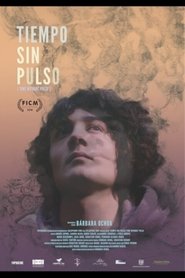 Bruno 19 years old has not begun...
Bruno 19 years old has not begun...Time without Pulse 2016
Bruno, 19 years old, has not begun his sexual life. He feels guilty about his brother's death and one of his exgirlfriends, who happens to be his first love, is back in town to help him out.
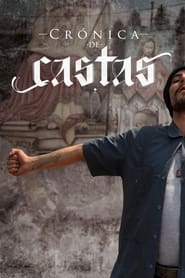 Dramatized series that shows a mosaic...
Dramatized series that shows a mosaic...Castle Chronicle 2014
Dramatized series that shows a mosaic of stories, which run in parallel and sometimes intertwine, around Tepito and its identity as a neighborhood, revealing the social prejudices that manifest themselves in classism and racism, as part of a historical reality in Mexico.
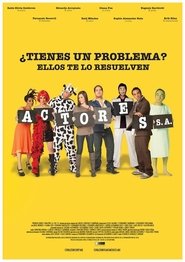 Thomas is a young actor the...
Thomas is a young actor the...Actors, Inc. 2013
Thomas is a young actor, the adopted son of Don Antonio, director and founder of the theatrical company to witch he belongs and where he presents his plays. When Don Antonio dies, Thomas is in the need to reestablish his artistic abilities and of the company to save the theater of falling in the hands of the very ambitious Mauro, nephew of Don Antonio who wants to tare it down in order to build a gymnasium. He sets up a web site where he offeres his services as an actor to anyone who needs them outside of the stage. Under those circumstances, Thomas knows Rebeca, mother of Lucia, who hires him to have Lucia fall in love in order to be able to collect an inherence.
 Sent to Mexico to help take...
Sent to Mexico to help take...The Crime of Padre Amaro 2002
Sent to Mexico to help take care of aging Father Benito, young Father Amaro faces a moral challenge when he meets a 16-year-old girl who he starts an affair with. Likewise, the girl's mother had been having an affair with Father Benito. Father Amaro must choose between a holy or sinful life.
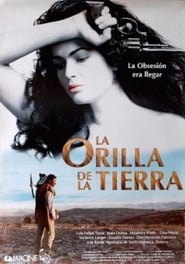 In a small town where nothing...
In a small town where nothing...The Edge of the Earth 1995
In a small town where nothing ever happens, the inhabitants learn about a place at the edge of the earth where money and women are abundant. When they see the oportunity to go and work illegaly in the United States, they jump at the chance. Meanwhile Andrés and Gregorio go to the town searching for treasures and they only find Matilde, the rest of the women in the town left, tired of waiting for the men to return.
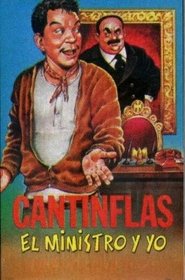 Mateo Melgarejo is a notary public...
Mateo Melgarejo is a notary public...El ministro y yo 1976
Mateo Melgarejo is a notary public and scribe for the illiterate people of Santo Domingo, a neighborhood north of Mexico City's Zócalo. A squatter friend asks for his help in negotiating with the land census bureau to regularize a land title. After a great deal of frustration with the government bureaucracy, he writes a letter to the cabinet minister, earning an audience with him. The minister hires Melgarejo to reform the bureau, and the appointee proceeds to lecture the officials on their duties in a democratic society. At the end, he gives up the post, returning to Santo Domingo to help its poor residents.
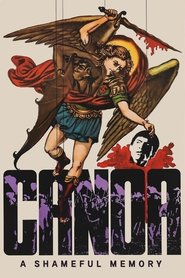 A group of students arrives in...
A group of students arrives in...Canoa: A Shameful Memory 1976
A group of students arrives in a small town during a hiking expedition. Once there, the local priest accuses them of being communist agitators on the run from an army crack-down against student demonstrations in nearby Mexico City and rallies the townsfolk to lynch them. Based on a true story.
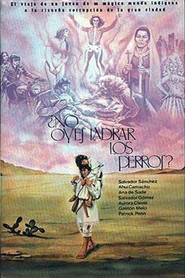 Carrying his son on his back...
Carrying his son on his back...Do You Hear the Dogs Barking? 1975
Carrying his son on his back, a man travels from place to place looking for a doctor to treat the sick boy. As they journey, the indio father tells the boy stories to keep him distracted. These stories reveal the life of native peoples in Mexico, both in the countryside and in cities, and they shed light on characteristic beliefs and rituals.

 On an island across the sea...
On an island across the sea...
 Driven by desire and desperate for...
Driven by desire and desperate for... Boy is traumatized from watching his...
Boy is traumatized from watching his...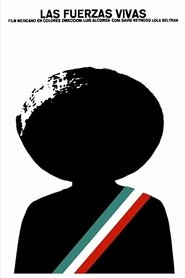 It narrates the phenomenon of the...
It narrates the phenomenon of the...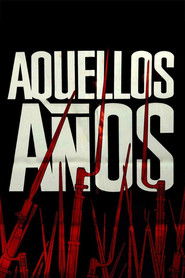 President Jurez fights against the conservatives...
President Jurez fights against the conservatives...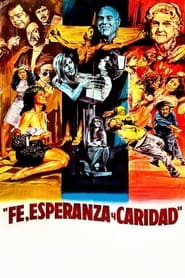 Three episodes Faith a woman is...
Three episodes Faith a woman is...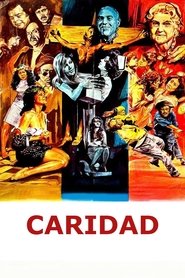 The charity of an elderly millionaire...
The charity of an elderly millionaire...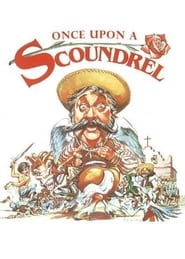 After falling for Alicia greedy and...
After falling for Alicia greedy and...